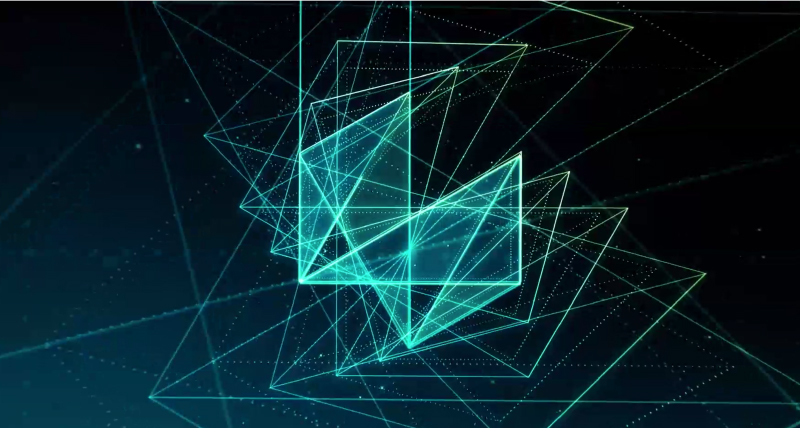Protean is a company who has the experience and systems to help your company through a digital transformation. By harmonising your documentation and data and making it available for smart plant systems, they can help reduce costs and improve productivity. We will learn how they can achieve this in today’s show.
BK: Welcome to HXGN Radio. I am Brian, thanks for joining us today. Protean is a company who has the experience and systems to help your company through a digital transformation. By harmonising your documentation and data and making it available for smart plant systems, they can help reduce costs and improve productivity. We will learn how they can achieve this in today’s show.
With me today is Anders Larsen, and he is the Chief Executive Officer of Protean. In today’s episode, we will be discussing the practical side of digitalisation. Thanks for joining me, Anders. How you doing?
AL: You’re welcome. Pretty good, thank you.
BK: All right, well tell us a little bit about Protean.
AL: Protean is a relatively new company. It was founded about a year ago today between me and my business partner, essentially to solve a problem that we saw in the oil and gas industry with information and information management, and that’s how to handle old data, old documents, now that they suddenly became viable again, specifically during decommissioning and also re-engineering of old fields. We saw a lot of common problems for trying to find information, verify data needed during these processes, suddenly relying on old paper copies and old format documents. And we thought there has to be a better way, there has to be a way to solve this problem, help businesses make better decisions. As we started thinking about that we saw there’s a bigger problem, from our practical experiences, harmonising data and documents across the organisation where very often you have different systems doing the same thing without actually communicating, so you have duplicate, triplicate, etc.
So we founded the company to try and solve this problem for businesses and help them improve productivity, reduce costs, all that.
BK: That’s great. Companies need those kinds of solutions, so that’s fantastic.
AL: Yes, and from our practical experience, we know that it’s something that they need.
BK: Yes.
AL: But right now, we’re in the business of trying to spread the word. We’ve a few things — people we talk to, they say they recognise the problem, but it’s that next step. That’s why we’re here, to tell people about what we can do and how/why they should do it.
BK: That’s fantastic. You know, it’s great. So many times, we’re here on the show, we hear about problems that regular businesses, companies have and then it’s like, “Here, here’s a solution. We’ve experienced this, we’ve fixed our own problem, here you go.” I love it. That’s what it should be.
All right, so tell me a little about your smart content managers, you’re certified to use our smart digital asset technologies, so explain how this has all come together.
AL: Well, actually, Smart Digital Asset Online, the Smart Plant Fusion specifically, which is one of the solutions is one of the key of our business is actually using smart digital assets to extract unstructured data from documents and files. Essentially making information digital, which is our slogan. In a sense, without the Hexagon products, part of what we do would be impossible. A lot of it is built around that. As smart content managers in this setting, we are certified by Hexagon to actually implement their systems at clients’ installations and help them adopt and make the necessary changes to use them. Where Hexagon people have the — obviously they know how to install and manage the system, we have the practical experience actually using and adopting these systems. And that’s what we can do, and what we’re certified to do is actually the practical aspect of using these systems.
BK: Love that. All right, so a little bit more about practical digitalisation, explain that a little bit more too.
AL: That’s part of what we do is bridging the gap between these Hexagon systems — such as we have the smart digital assets or Smart Plant Owner Operator suites and all of these intelligent tools. They’re very good at what they do, the new digital world — they are the solution, the way of the future, if you will. But a lot of businesses as I mentioned before have paper documents, have old format files, which do not integrate with these systems. So, they say, “Well, we would like to have them, we can’t really benefit from these sorts of solutions today.” So either they don’t buy them, or they do, they buy them, but they only get a fraction of the benefits.
So, what we have done is we’ve found ways to rapidly and efficiently digitise your data from — using industrial, ultra-efficient scanners, we can scan upwards of a quarter of a million pages per eight-hour day. So that’s really, extremely fast scanning to state-of-the-art OCR, converting digital image files to full-text search, which is what Smart Plant Fusion requires to do the digital extractions. Then performing the extraction, adding on laser scanning with — using laser scanners to create a 3D digital representation of your plant and then integrating everything and delivering it in your new smart digital asset solution — essentially doing the practical aspect of it and greatly enhancing the value of your investment. So it’s actually then delivering the data into the solution that you just bought from Hexagon.
BK: Nice, that’s great. That’s impressive that you’re able to do so much of that, too, so that’s great. How about Smart Plant Fusion? How’s that benefited your products as well?
AL: Well, as I mentioned it is a core aspect of our solution, how to efficiently extract unstructured data from your documents, being able with a relatively easy set up and then crawl through, extract data, deliver tag data, equipment data and deliver these cross-reference tables, etc., and basically build your digital information. Without fusion, we just — I wouldn’t say we couldn’t operate, but it wouldn’t be at the level that we strive to be at. Fusion is, in our view, a state-of-the-art tool that needs to be utilised properly. And then, an SDA, this new smart digital asset, is really the way to do it.
BK: Nice. So obviously there’s so many great benefits, do you have any personal stories from some of your clients, where they have said, “Hey, this is amazing, here’s what happened as a result?”
AL: Not so much that way, because smart digital is relatively new, but I can say from the other aspect of it, I’ve seen what happens when they don’t do it,… You have one side, where people have, as I said they want to buy Smart Plant systems, Fusion being one of them or Smart Plant, PID, whatever. They look at it, they see the benefits, they think it’s great. Then they look at their physical archives and say there’s no match between this. So they end up not doing it and continue business as usual, and actually they’re not making the digital transformation that would have helped them save a lot of money.
And then you have the other aspect where they do actually implement smart systems, but without performing the digital transformation or the digitising that we represent. So now, all you’ve really done is add another system to your large collection and you very often create more problems for yourself by now adding more confusion. We have all of the examples of what can go wrong, now we just need people to understand that with our help it is relatively easy to — I wouldn’t say “easy” because it’s not like —
BK: Simple.
AL: Yes, it is simple. We have the solution to help you gain the benefits of these systems and it’s very obvious that you can save a lot of time — and we can all relate to how much time you spend searching for information … By using this SDA technology, you can, you’re not 100 percent eliminating, but you greatly reduce that time that you spend searching through archives, etc. So we know the benefits, but I can’t say, “Look at Client X, this is the way to do it,” because nobody has actually, in front of us, nobody has actually tried it yet.
BK: Sure, well no, and that’s the beauty of it being new. You’re getting out there and letting them know. And of course, transitioning from paper to digital — transitioning from anything is always an insurmountable thing in the head whether or not it’s actually hard or time-consuming, and it may be, people are just going, “Oh my gosh, I can’t handle it.” But it’s simple.
AL: And a very key aspect of this is that a lot of people don’t realise that it’s a problem because information management is such an ingrained part of any business, their structure is how we’ve always done it. So, they fail to realise that a reason why your projects are often delayed, a reason why you spend extra time on these projects or extra money on these is because you spend so much time searching for, evaluating and validating data. A lot of emails, correspondence that goes back and forth in a project, is trying to validate data and information. But you don’t think about it because it’s just the way it is. So that’s another aspect of what we do, being outsiders, being neutral and giving a review of where the problems are in your information management process.
BK: So there’s obviously so many benefits to it. And of course, like you said, there’s the challenge of customers not knowing that they need this solution or, like I said, it’s a mounting “Oh, my gosh, there’s so much to do here” kind of thing. But if you were to go to a company and say, “Here’s one or two reasons this is exactly why you need this. Here’s the problem, and we’re going to fix this” — what do you tell them?
AL: One reason why they would use us and what we would do for them is, we are experts, we have the practical experience. I mean, up until we founded the company last year, we both worked 15 plus years’, working information management in oil and gas. Me from the practical IM perspective, having worked with most of the big owner/operators and EPCs in Scandinavia, Norway, particularly, where it has a record for being on the cutting edge of this technology, especially in oil. And my partner comes from the other side, the IT, the actual information — the IT systems perspective. But we have the practical experience. We understand what the problems are and what you need to do, what’s the easy fixes, what are the hard fixes, what do you need to do. Because implementing systems like smart digital assets is a great step, but if you don’t realise that also means you have to change how you do business. Your processes have to change, your procedures have to change, and we can help you with that because we understand what needs to be done and what are the consequences of these systems on your business and it helps you maximise the benefit.
BK: I love it. And it saves them money, too, in the long run.
AL: It saves money and improves productivity.
BK: Absolutely. It’s so amazing and I think there’s always that cost objection. “Oh, my gosh, well we’ve got to spend this money to get the solution going,” but the reality is that it does save a significant amount in the long run, so that’s wonderful. It seems like a no-brainer to me.
AL: We like to think so.
BK: Awesome, sounds great. You can learn more about all of this and how it can benefit you at protean.dk. So go check it out and, Anders, thank you so much for being here today and taking the time.
AL: Thank you for the opportunity.
BK: Be sure to tune into more episodes of HXGN Radio, HxGNRADIO.com, iTunes, Sound Cloud, Stitcher Radio. Thank you so much for joining us and enjoy your day.

















